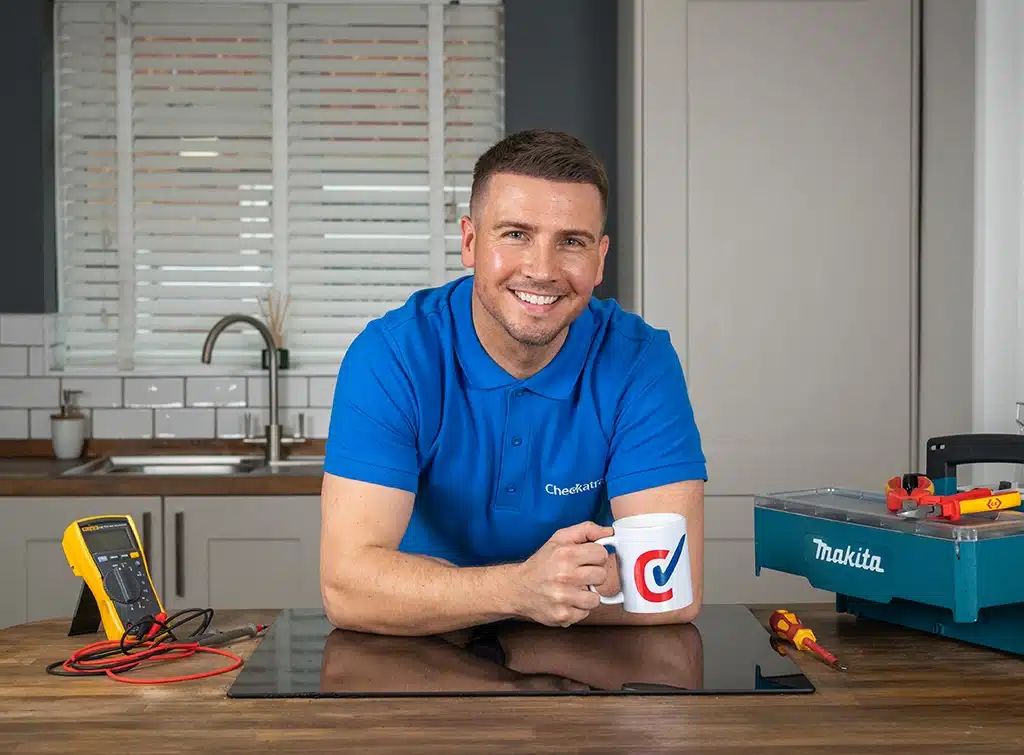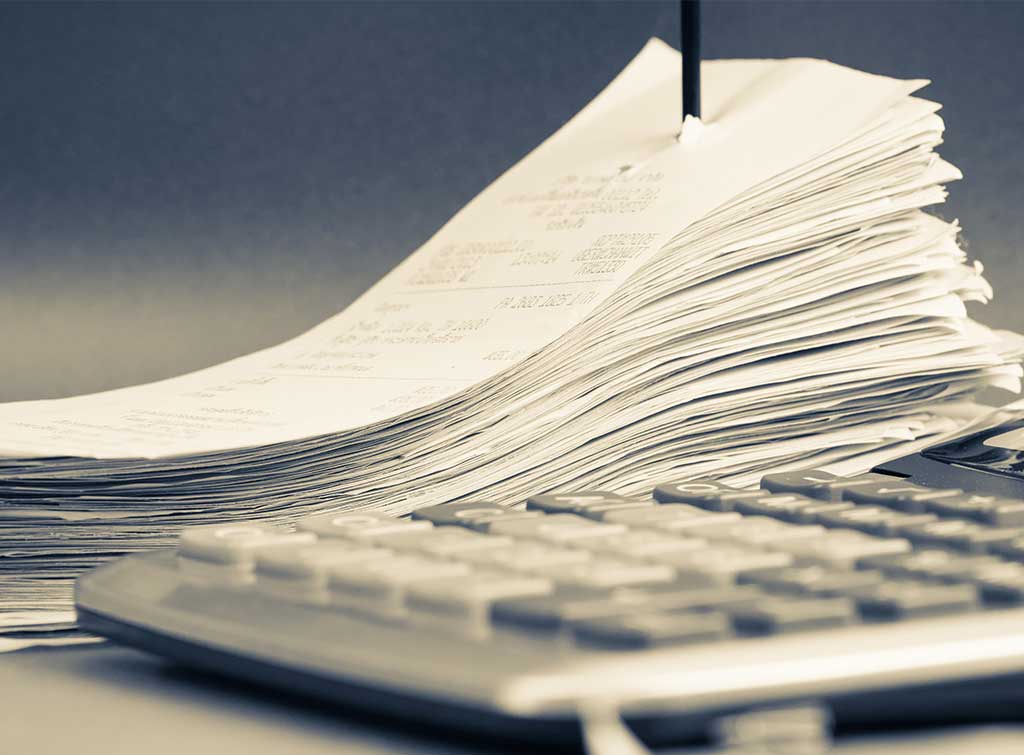Blog>Trade>Finance>How to calculate variable cost
Last updated: 19 December 2024
How to calculate variable cost
Knowing how to calculate variable costs for your trade business can be the difference between success and failure. This article explains the variable cost formula and what is variable cost in business.
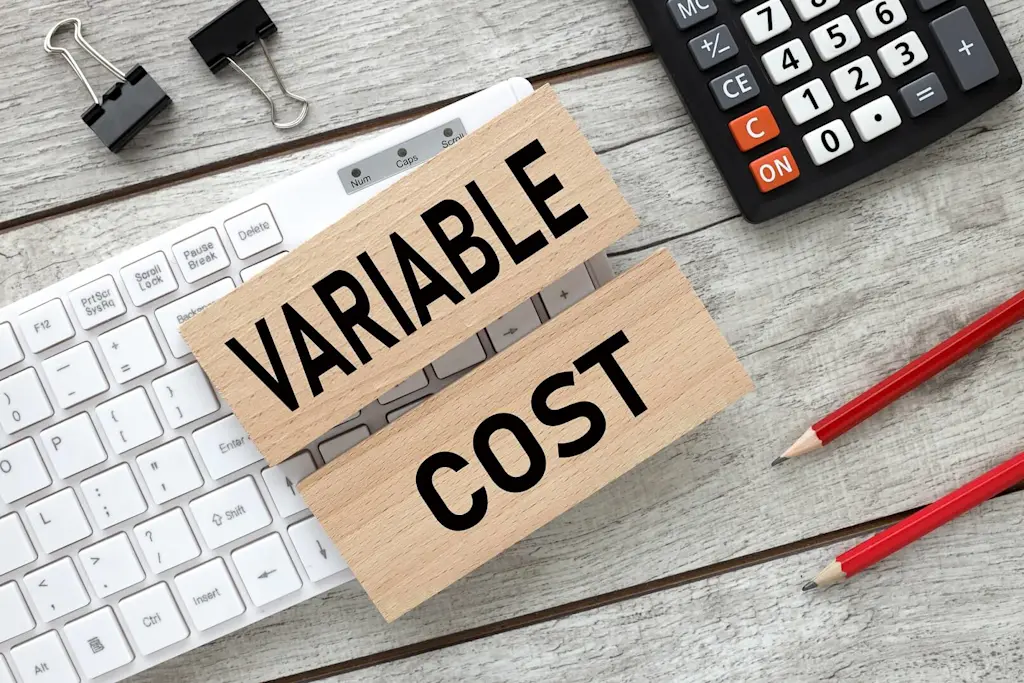
As a tradesperson, you want to enjoy what you do and be profitable. How much profit you make depends on two key things:
What you charge for your work
The costs to your business of doing that work
The second bit is where variable costs come in. Variable cost may sound like a load of maths and formulas, but it’s not mumbo jumbo.
Knowing what your variable costs are allows you to make sure you charge customers enough to cover these costs. With surplus money left over to be profitable.
If you don’t, your job pricing could go wrong. You could lose money on jobs.
How to price a job
You need to consider lots of different elements when you price a job. It helps to have a consistent and accurate way of pricing jobs. A pricing template can do that for you. A job pricing template is a great way to start thinking about the whole picture. How to price up a job varies for every trade

What is variable cost in business?
Your variable cost in business will change depending on how much work you do or how many products you make and sell.
They can change often and by a lot. It depends on the nature of your trade business and the way you usually work.
Types of variable cost
In this article, we cover three main types of variable cost:
Total variable cost (useful if you carry out a single main activity, like a solar panel installer or a bricklayer)
Average variable cost (useful if your trade covers a range of work, like electricians or plumbers)
Semi-variable cost (useful for looking at your total business costs - variable and fixed)
The clue is in the title with variable costs. They are regular business costs that don’t stay the same.
Your variable costs are likely to go up when you:
Take on more work
Increase your sales
Produce more goods, services or products
By calculating your variable cost, you can more accurately price work so you make a profit. In other words, the price you charge takes account of variable cost.
If you know how to calculate variable costs you can control your budget better. It also helps you manage your cash flow.
Using a budget planner for your business
Budgets have to be tamed - and that's where we can help you. You've got to have a budget planner that fits your work pattern. Then you'll need to think about a budget template that makes it easier to manage your business. Having a budget planner app keeps you in control when you're on the go. How to
Benefits of knowing your variable costs
As we’ve said, knowing how to calculate your variable costs gives you a better idea of how to price jobs profitably. Here are some of the main benefits of keeping a close eye on your variable costs:
Increase your profitability by covering your costs
Manage and control your business expenses
Identify where you might be paying too much for materials or equipment
Make better business decisions by monitoring your costs
Improve your cash flow by comparing revenue against costs over time
See what sales you need to achieve to cover your variable costs
Increase your sales (and also your variable costs) in a more controlled way
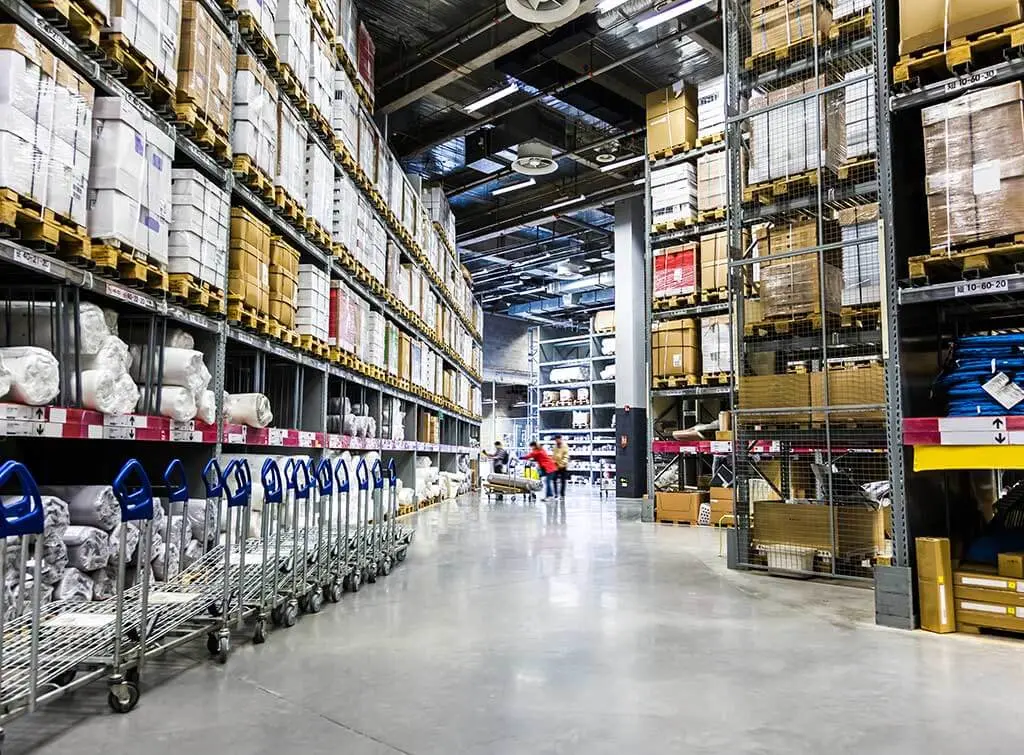
Variable cost examples in business
Why is variable cost variable? Usually, this happens when you take on more work. You need to buy more things to complete extra jobs. These costs are your typical business expenses.
Here are the main variable cost examples for typical trade businesses:
Materials and supplies
These can vary for different reasons. The more jobs you do, the more materials you may need. Larger jobs could require more materials.
Another financial calculation that could be useful here is mark-up on materials. Tradespeople often mark-up the cost of materials. They charge this higher figure to customers. It’s a way of boosting profit on a job.
Using labourers and contractors
If you have employees, they are a fixed cost (see below) to your business. That’s because you probably have to pay them whether or not there is any work to do. However, other labour costs can be variable.
If you take on more work or bigger projects, then you could need more hands. That’s when you have to pay for labourers, freelancers and contractors. The cost will go up or down depending on how much you use them.
Travelling to jobs
Here again, the busier you are the more likely you are to pay more to get to customers. If you take on jobs in a new area further away then these costs could rise.
Energy costs
The cost of light and heat for buildings, workshops and offices is likely to vary. Again, this comes down to how much you use them. The same goes for other utility bills, like water costs.
Credit card fees
Banks usually charge businesses per payment made on a credit card. So, the more purchases you make, the higher the fees could be on your card.
Marketing and advertising costs
This is another business cost that’s likely to go up or down depending on how much new work you want.
Accounting and legal fees
Professional fees are often counted as variable as they can change. The more there is for your accountant to do, the more they are likely to charge you. As your trade business grows, so could their fees.
Alternatively, you could request a fixed annual fee regardless of how much your revenue increases in the year.
Paying commissions and bonuses
Offering staff sales-based incentives is a great way to increase your revenue. That makes these payments variable. The cost will go up the more sales you win. The same goes for staff bonuses based on your profits.
Control your costs and win more work
We can help your trade business find more leads in your area
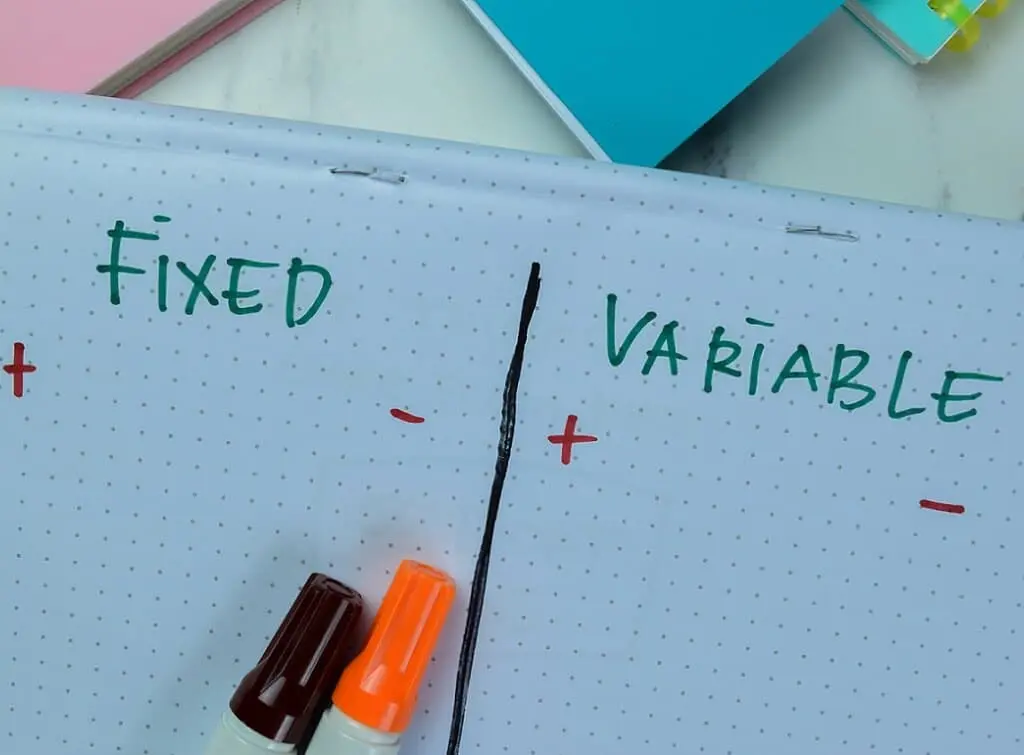
Variable costs v fixed costs
You may hear about another type of business cost: fixed costs. In a way, they are the opposite of variable costs. That’s because they stay the same. You usually have to pay them whether or not you’re working.
Examples of fixed costs are:
Rent and rates
Mortgage on a business property
Depreciation on vehicles, plant, tools and equipment
Business loan and finance repayments
Understanding your break-even point
As a trade business, break-even is the point where there’s more money coming in than going out. The money going out is the combination of your fixed and variable costs.
That’s why you’ve got to keep a tight grip on your variable costs. Your variable costs may go down the less busy you are, but you still have to pay them.
It’s a sound way to help you manage your cash flow.
Simple tips for how to manage cash flow
Understanding cash flow management Whether you’re an experienced business owner or just starting out, you can't ignore cash flow management. A small trade business needs to manage cash flow because every penny counts. Larger national and regional businesses face bigger movements of cash. That can
Ways to cut variable cost
Variable costs may go up or down depending on how much work you do, but they’re controllable. Here are some handy ways of reducing your variable costs:
Look for deals and discounts on materials and supplies
Use supplier loyalty card schemes
Switch to more fuel-efficient vehicles
Plan routes to jobs carefully to reduce mileage
Reduce expenses wherever you can by cutting out things you don’t need
Save energy in buildings by switching off equipment and computers when they’re not needed
Switch energy supplier to save money
Do your own marketing using social media
Ask your accountant to charge a fixed fee regardless of how much your annual revenue increases

What is the variable cost formula?
Now, let’s break down the variable cost formula so you know how to calculate your variable costs.
You may have heard about how to calculate variable cost per unit. Here, unit usually refers to manufacturing processes where units of goods are made.
For tradespeople, each unit can be each type of job you do.
For example:
A window cleaner working on a certain number of windows
A bricklayer making a wall of a certain length
An electrician re-wiring one room
A plumber installing a boiler
Total variable cost formula
The total variable cost formula tells you your costs for doing one type of job.
Here’s the formula:
Total variable cost = the number of jobs you do multiplied by the variable cost of each of those jobs
Here’s an example:
You do 10 jobs in a year
Your variable costs per job are Materials (£50) + Contractor costs (£70) + Marketing (£10) + Energy costs (£10) + Credit card fees on purchases (£10) = £150
Your total variable costs is 10 x £150 = £1,500
How to calculate average variable cost
The average variable cost tells you the combined cost of doing various different types of jobs.
This might be more helpful to tradespeople who undertake a range of types of work.
The formula is:
Average variable cost = Total variable cost divided by the number of jobs you do
Here’s an example:
A plumber installs 6 boilers at a variable cost of £500. The total variable cost is 6x£500 = £3,000
The plumber also installs 3 shower units at a variable cost of £400. The total variable cost here is 4x£400 = £ 1,600
The total variable costs for the two jobs is £3,000 + £ 1,600 = £4,600
To calculate the average variable cost for the two different types of jobs you divide the total variable cost (£4,600) by the number of jobs (6+4=10) = £460
If it sounds a bit complex, don't worry. It is where bookkeeping and accounting software can come in handy.
And as a Checkatrade member, you could get access to premium business software like Quickbooks for much less.
Checkatrade members can save 75% on the first 12 months of QuickBooks Software*
As well as your tools, workwear and vehicles, the support you get for your trade business can make a big difference to your success. QuickBooks Software is designed for accounting and bookkeeping, helping you stay on top of your finances. With Checkatrade, you can make great savings on that too! We
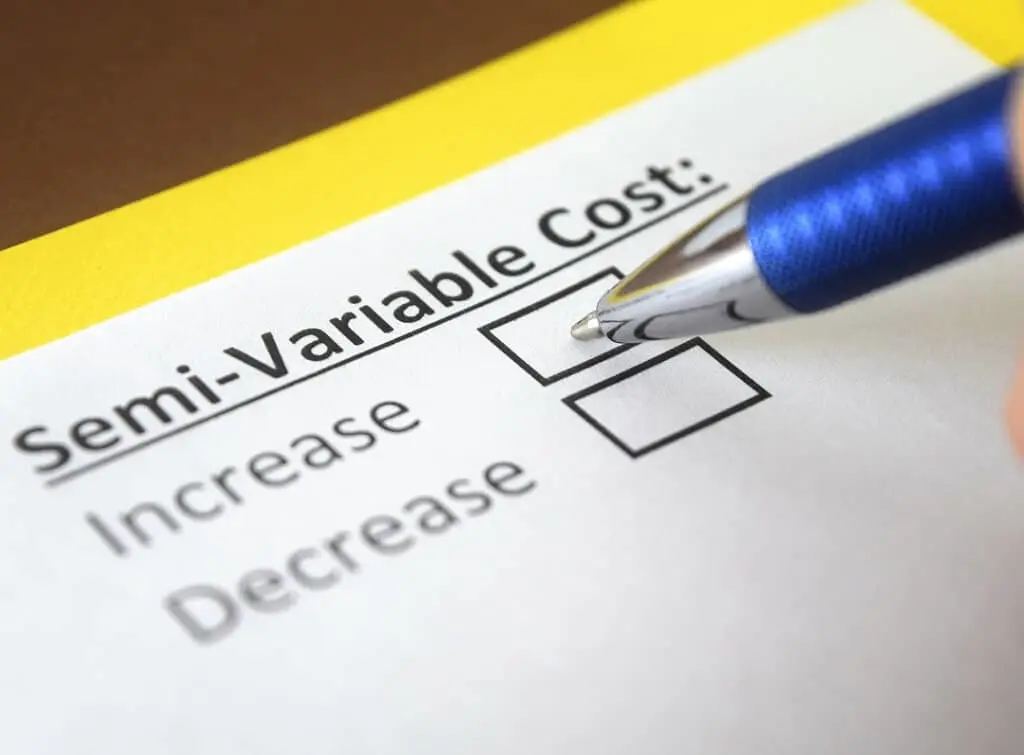
What is semi-variable cost?
It may sound like yet another type of variable cost to get your head around. But semi-variable cost calculations can be useful.
Semi-variable cost simply combines your fixed and variable costs. Some tradespeople find this an easier way to look at what they spend. It can help you better understand your overall business costs.
Here's the formula:
Semi-variable cost = Variable cost + fixed cost
You usually work out a semi-variable cost over a period, for example, one month or one year.
Here’s an example:
Your fixed cost includes running a vehicle, the cost of equipment needed for the job, insurance, and an employee’s salary. The total is £3,000 for one month
Your total variable cost for one month = £500
Your semi-variable cost for one month is £3,000 + £500 = £3,500
Here’s another example looking just at your energy bills:
You have to pay a standing charge for your gas and electricity in your workshop of £200 per month. This is a fixed cost. You have to pay it whether or not you are working
During the month, you take on three jobs and use more electricity. The extra on your energy bill is £50. This is your variable cost
Your total semi-variable cost is £200 + £50 = £250

Increase your revenue to cover your costs
Knowing how to calculate variable cost is only one-half of running a profitable trade business. The other half is winning work that brings in revenue.
We can help you on both counts. Checkatrade members receive our help with new enquiries.
Checkatrade membership also includes ways to reduce your variable and fixed costs:
Exclusive offers and discounts with suppliers like Tradepoint and Wickes
Reduced cost of workwear and branding
Guaranteed work when booked through us (T&Cs apply)
Dedicated trades apps for job management and quoting/invoicing
What do you need to become Checkatrade approved?
Becoming a Checkatrade member comes with a whole host of benefits, but the biggest has to be gaining our seal of approval. Homeowners tend to expect a commitment to quality when it comes to the Checkatrade tick, which can help you to win more business. Here are the checks you'll need to pass to join our directory.
FAQs
What is variable cost in business?
These are costs relating to one type of job you do that can vary, usually when you have more or less work.
How to calculate variable cost?
Take the total of all the variable cost relating to one type of job and divide it by the number of jobs you do.
How to calculate average variable cost?
Here, you take the variable cost of each different type of job you do and divide it by the total number of different jobs you undertake.
Is labour a variable cost?
Full-time and part-time employee salaries are not. They’re fixed costs because you have to pay them anyway. Paying contractors and freelancers on specific jobs can vary, so they are a variable cost.
Is advertising a variable cost?
Yes, it usually is because the amount you spend is likely to go up or down according to how much work you are doing.
What are the benefits of knowing your variable costs?
Keeping control of both variable and fixed costs helps trade businesses to be more profitable. It also makes it easier to manage cash flow and prepare financial budgets.
Ready to take your business to the next level?
We can help you get there




